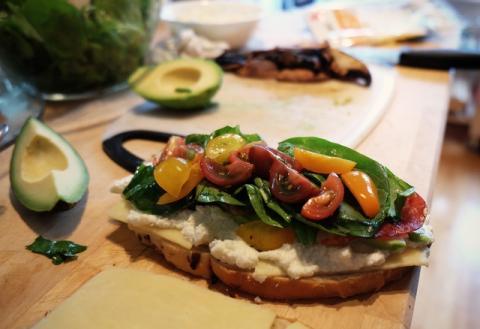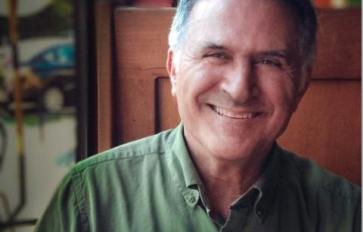
Just like many other daily activities, eating can be approached from a mindful perspective that enhances the experience. Here are 5 ways to eat more mindfully:
1. Tune in
Chances are your body knows exactly what it needs in terms of nutrients. Any form of restrictive dieting can hinder the body’s natural ability to do this. Pay attention to where hunger comes from—is it brought on by emotional triggers or a physical sensation? Intuitive eating can heal the body and help eating issues. Listen and make a conscious decision about a meal or snack before grabbing the closest or fastest option.
2. Gratitude
Think about the labors that went into your food. Meditate on the farmers who harvested it, the truck driver who drove it to the store, and the cashier who rang it up. When we think about where our food comes from, it is harder to ignore the environmental effects of food shipped from across the country, versus food grown locally. We become more aware about any suffering that we may be a part of when purchasing certain foods.
3. Unplug
When distracted while eating, such as in front of the TV or while scrolling endlessly through social media, we end up with an empty plate and don’t know how it came to be. It is more satisfying to focus on the food as we eat it, enjoying the sensory details. Distractions hinder our ability to savor our food. When we pay attention, we gain awareness as to when we are full.
4. Slow Down
Focus on your food. Chew slowly. Perhaps take smaller bites and enjoy the meal longer. Eating slower aids in better digestion, as the enzymes in saliva help break down food, which is less work on the gut.
5. Wash Your Bowl
After the practice of mindful eating, we must do the next thing. The following is from a Zen Koan, a story used by Zen Buddhists to aid with the meditation and enlightenment, entitled “Wash Your Bowl”:
A monk told Joshu, "I have just entered the monastery. Please teach me."
Joshu asked, "Have you eaten your rice porridge?
The monk replied, "I have eaten."
Joshu said, "Then you had better wash your bowl."
At that moment the monk was enlightened.
This Koan is so pertinent to mindfulness, because its crux is doing what must be done. After eating mindfully, we must wash our bowls, and move on. The monk becomes enlightened because he continues on to the next task. The premise of mindfulness is to have a deeper awareness entirely. In this case, it is while eating. As a constant practice, we must then move on with our full attention, and wash our bowls.







![Page Turners: Holistic Book Reviews - [How Yoga Works by Geshe Michael Roach]](/sites/default/files/styles/article_image_370x300/public/2020-08/page%2520turners%2520new%2520series%2520pic_8.jpg?itok=9BYV_vN6)
